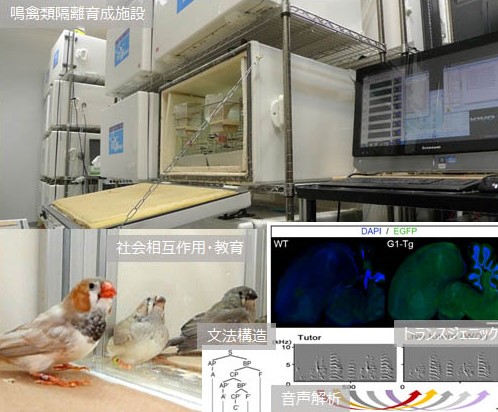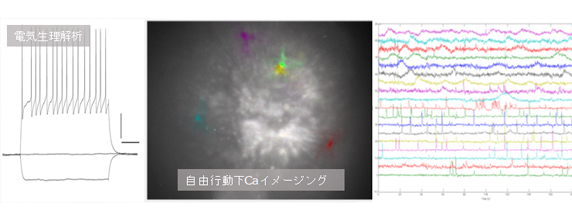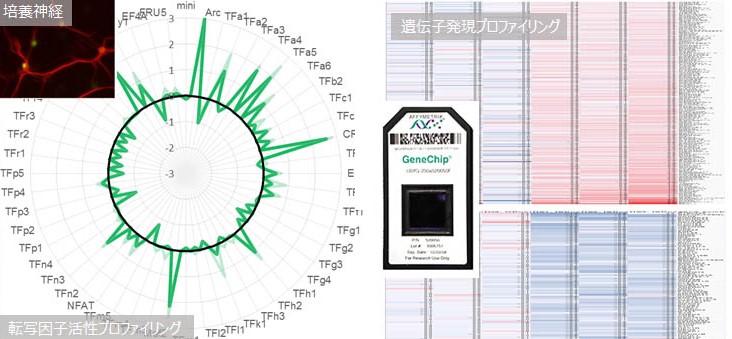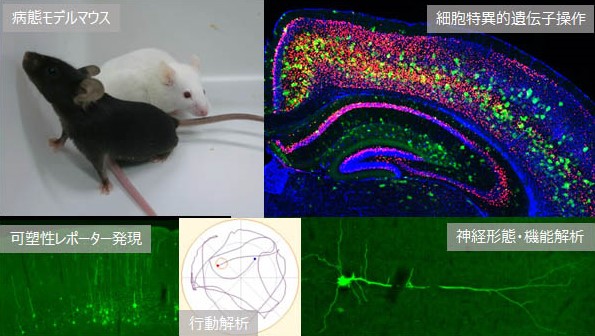Humans grow up under the influence of their environment and society and, even into adulthood, we are continuously changing in response to new information. Indeed, the nervous system of an animal is formed not only by intrinsic factors such as genomic information, but also by extrinsic factors such as environment, society, or parenting. It is now becoming clear that the structure and function of the brain’s neural network plastically changes not only during development but also in adults. Our laboratory studies the mechanisms behind brain development and changes by examining the following systems: songbird vocal communication, rodent learning abilities, brain impairment under pathophysiological conditions, and gene transcription regulation in vivo. We use experimental methods in the fields of molecular biology, cell biology, along with brain imaging and optogenetics to conduct behavioral analyses. We hope that our research will contribute to a better understanding of the basal mechanism of brain function and will serve as a foundation for the development of remedies for brain disorders. We also will strive to establish an optimal education system to improve the learning efficiency or to promote healthy growth and development of animals.
Go to the Japanse version

The neural and developmental mechanism of vocal communication
Songbirds tweet with each other using sounds woven into sequences, which are called “songs”. Like human speech, their ability to communicate using “songs” develops according to genetic and social influences. We study the neural mechanism whereby songbirds communicate each other through vocal signals, and how such ability is acquired through individual postnatal developments. Through separately regulating both intrinsic and extrinsic influences, by our unique methods to generate transgenic songbirds, and by the equipment to educate songs within an experimentally controlled postnatal environment, we are now trying to reveal how such ability develops and plastically changes according to postnatal experiences. Through experimental approaches on songbirds, we intend to provide insights into how each human child acquire their own languages, a remaining mystery in the field of animal development.


Plastic changes of the brain throughout the life course
According to the postnatal experiences, such as social interaction, learning, and disease, the function of the brain plastically changes throughout the life course. Using mice as a model organism and our novel system to quantitatively measure the brain-state, we are trying to reveal the mechanism that causes such plastic and chronic changes to the brain. Through the analysis, we aim to establish the methods to enhance or sustain the brain function by manipulating the lifestyle or providing the adequate information to the animal. In future, we hope we can provide the novel remedies or the way to prevent the brain disorders in humans.




